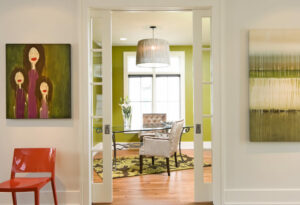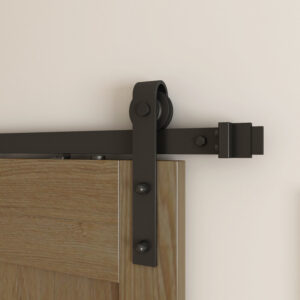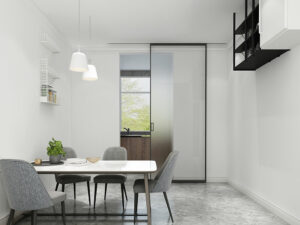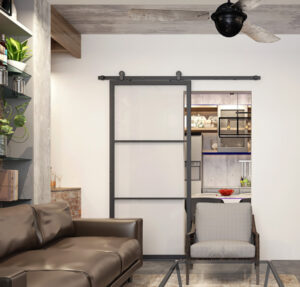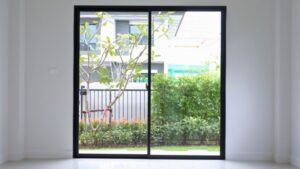Steel doors protect buildings, meet fire and security codes, and reduce long‑term costs. This guide profiles 10 trusted manufacturers and includes a quick buyer’s checklist.
*If you don’t have time to read the whole guide, contact us directly to discuss your needs and get a tailored recommendation.
Why choose steel doors?
- Strength & security: Steel doors offer superior resistance to forced entry compared with hollow-core or wood doors.
- Fire & life-safety: Many steel doors are available with tested fire ratings and are compatible with fire-rated frames and hardware.
- Durability & low maintenance: Steel resists warping, cracking, and rot; finishes can be factory-applied for decades of service.
- Cost-effectiveness: Lower total cost of ownership due to long life and reduced maintenance.
- Technical note: Typical fire-rated steel doors are tested to standards such as UL 10C and NFPA 252 (check manufacturer certification).
1) All Steel Doors
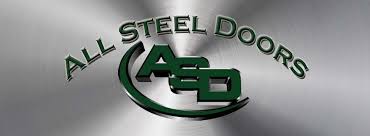
- Profile: A versatile manufacturer known for producing cost-effective commercial hollow metal doors and frames. They focus on broad availability, dependable lead times, and practical solutions for schools, retail, and multi‑family projects.
- Typical product lines: Standard and reinforced hollow metal doors, insulated doors, and specialty fire-rated doors.
- Ideal applications: Commercial buildings, schools, retail and multi-family housing.
- Strengths: Widely available, competitive pricing, straightforward lead times.
- Buyer considerations: Confirm fire-label listings and lead times for custom sizes/finish.
2) AMBICO
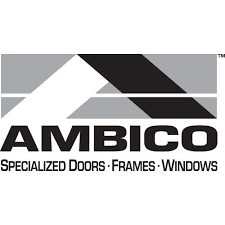
- Profile: A specialist in heavy‑duty and security‑oriented steel door solutions, AMBICO emphasizes customization and robust construction for industrial and high‑security environments. Their product range commonly includes reinforced doors, frames, and security hardware options.
- Typical product lines: High-security doors, reinforced frames, sound-rated assemblies, and specialty hardware options.
- Ideal applications: Industrial facilities, secure installations, institutions.
- Strengths: Custom fabrication, emphasis on robustness and security features.
- Buyer considerations: Ask for test reports for sound transmission class (STC) or ballistic/security performance if required.
3) Apex Industries
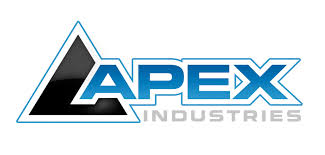
- Profile: Apex blends functional steel construction with attractive finishes and reliable manufacturing. They target commercial and exterior applications where durability and appearance are both important, offering painted and insulated door options.
- Typical product lines: Painted steel doors, insulated cores, and architectural-grade units.
- Ideal applications: Commercial interiors, exterior applications where appearance matters.
- Strengths: Good finishing options, emphasis on consistent quality.
- Buyer considerations: Verify finish warranties and corrosion protection for exterior installations.
4) De La Fontaine
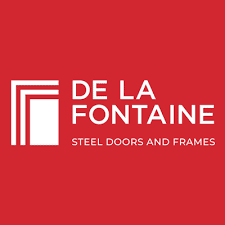
- Profile: An architectural hollow‑metal specialist that serves design‑forward projects, De La Fontaine is known for high‑quality fit-and-finish and custom detailing. They excel at bespoke doors with refined welding, vision lites, and aesthetic options.
- Typical product lines: Custom architectural steel doors, custom louver and vision options, high-quality welding/fit-and-finish.
- Ideal applications: Architecturally-sensitive commercial and institutional projects.
- Strengths: Attention to custom aesthetics and architectural detailing.
- Buyer considerations: Higher price point for custom work; specify mock-ups where finish/aesthetics are critical.
5) Diamond Manufacturing

- Profile: A scalable manufacturer capable of fulfilling large orders for commercial and institutional projects. Diamond Manufacturing focuses on consistent production quality and efficient delivery for multi‑site developments and government contracts.
- Typical product lines: Standard steel doors, fire-rated assemblies, and bulk orders for large projects.
- Ideal applications: Large developments, government projects, and multi-site rollouts.
- Strengths: Capacity for large orders and consistent manufacturing quality.
- Buyer considerations: Negotiate bulk pricing and confirm consistent labeling on fire-rated doors.
6)Tengyu

- Profile: Tengyu supplies cost‑effective door systems and hardware — steel, wooden and metal‑frame glass doors, frameless glass partitions, sliding/barn/closet systems, shower fittings, and locks/accessories.
- Ideal applications: Residential and light‑commercial interiors, bathrooms, office partitions, and bulk fit‑out projects.
- Strengths: Wide product range with customizable options, competitive pricing, and project‑scale supply capability.
- Buyer considerations: Verify certifications and finish warranties, confirm suitable hardware for intended use and installation, and check corrosion/durability specs for wet or high‑traffic areas.
7) Gensteel Doors
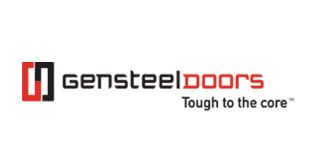
- Profile: A mid‑market manufacturer offering straightforward, functional hollow metal doors and pre‑hung units. Gensteel is popular for retrofit work and commercial tenant improvements where common sizes and reliable pricing matter.
- Typical product lines: Standard hollow metal doors, pre-hung units, and retrofit solutions.
- Ideal applications: Retrofit projects, commercial tenant improvements, institutional replacements.
- Strengths: Good mid-market solutions; straightforward ordering for common sizes.
- Buyer considerations: Make sure to confirm hinge/strike reinforcement for high-traffic locations.
8) Metalec

- Profile: Metalec specializes in heavy‑gauge and security doors with advanced coating and corrosion‑resistant options. They’re a go‑to for coastal, corrosive, or high‑abuse environments requiring durable finishes and thicker steel gauges.
- Typical product lines: Security doors, heavy gauge units, and specialized coatings.
- Ideal applications: Secure facilities, coastal or corrosive environments (with proper finishes).
- Strengths: Heavy-gauge options and specialized corrosion-resistant finishes.
- Buyer considerations: Request coating and salt-spray test results for coastal projects.
9) Trillium Steel Doors
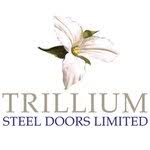
- Profile: Trillium focuses on customizable, code‑compliant hollow metal assemblies for institutional and commercial use. They provide flexible options for fire‑rated doors, acoustical requirements, and other project‑specific features.
- Typical product lines: Custom fire-rated doors, acoustical options, and specialty frames.
- Ideal applications: Schools, hospitals, public buildings requiring code compliance and customization.
- Strengths: Flexibility, willingness to work with architects on specifications.
- Buyer considerations: Confirm labeling for fire-rated assemblies and lead times for custom features.
10) Vision Hollow Metal
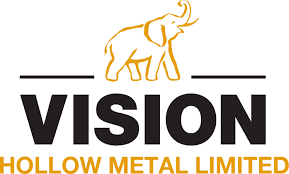
- Profile: A manufacturer that emphasizes modern fabrication and quality glazing integration, Vision Hollow Metal supplies architectural hollow metal doors with precision welding and vision lite options. They suit projects where sightlines and finish quality are priorities.
- Typical product lines: Architectural grade hollow metal doors, glazed vision lites, and specialty frames.
- Ideal applications: Commercial architecture where glazing and sightlines are requested.
- Strengths: Integration of vision lites and quality welding/finishing.
- Buyer considerations: Specify glass type, gaskets, and thermal breaks if required.
Side-by-side comparison (high level)
- Best for heavy-duty security: AMBICO, Metalec
- Best for architectural/custom aesthetics: De La Fontaine, Vision Hollow Metal
- Best for large-scale/bulk projects: Diamond Manufacturing, Gensteel Doors
- Best for technical/performance requirements: Fleming, Trillium Steel Doors
- Best for cost-sensitive projects: Tengyu, All Steel Doors
Buyer’s checklist – what to request from steel door manufacturers
- Fire-rating and labels: Ask for UL/Intertek test reports and product label details for required fire ratings (e.g., 20-, 45-, 60-, 90-minute).
- Material and gauge: Specify steel gauge (e.g., 16-ga, 14-ga) for door face and reinforcement requirements.
- Core type: Hollow, honeycomb, mineral wool, or polystyrene — match to sound, fire, and thermal needs.
- Finishes & warranties: Factory-applied paint, powder coat options, and warranty terms for exterior use.
- Hardware reinforcement: Reinforcement plates, hinge/lock preparation details, and compatibility with specified hardware.
- Dimensional tolerances & clearances: Confirm frame profiles, head/jamb returns, and rough opening requirements.
- Lead times & production capacity: Especially for custom or bulk orders — get committed lead times.
- Certifications & compliance: Fire labels, ADA clearances for egress hardware, STC ratings if acoustics matter.
- Mock-ups & samples: For projects where appearance, glazing or finish is critical, request a mock-up.
- Installation & service support: Availability of templates, installation guides, and after-sales service.
Need help selecting the right steel door manufacturer for your project?
For a partner that combines quality with flexibility, we recommend exploring what Tengyu has to offer. Tengyu is well-regarded for providing a diverse range of steel door solutions and welcomes both customization and bulk orders.
Whether you are developing a large commercial property or need a unique door for a custom home, Tengyu has the capabilities to meet your needs. You can see their variety of Metal Frame Glass Hinged Doors and other Glass Door & Partition options. For a personalized quote or to discuss your project’s specific requirements, don’t hesitate to reach out to our team.
Frequently asked questions (FAQ)
Q: What are the main advantages of choosing steel doors over wood or hollow‑core doors?
Steel doors offer superior strength and security, better fire‑rating compatibility, and greater long‑term durability. They resist warping, cracking, rot, and generally require less maintenance and fewer replacements, yielding a lower total cost of ownership. Many steel doors also come with factory finishes and available tested fire ratings for life‑safety compliance.
Q: Do steel doors come with fire ratings, and what tests should I look for?
Yes — many steel doors are available as fire‑rated assemblies. Ask manufacturers for test reports and labels referencing standards such as UL 10C and NFPA 252 (and Intertek/WH for equivalency where applicable). Always confirm that the door, frame, and hardware are labeled together as a tested assembly for the required minute rating (e.g., 20/45/60/90).
Q: How do I choose the correct core type for my project?
Select the core based on your priorities: mineral wool or engineered cores for fire resistance, honeycomb or polystyrene for lightweight/thermal needs, and solid or reinforced cores for high‑security or acoustic requirements. Request manufacturer data on fire performance, STC (sound transmission class), and thermal R‑values to match the core to project specifications.
Q: What steel gauge should I specify?
Gauge depends on application: lighter commercial interior doors often use 18–16 gauge, while exterior, heavy‑use, or security doors commonly use 16–14 gauge or heavier. Specify face‑sheet gauge and reinforcement requirements in your contract documents and ask for stamped gauge confirmation on submittals.
Q: How important are factory finishes and what warranties should I request?
Factory finishes (paint or powder coat) provide consistent appearance and longer life than site finishing. For exterior or coastal projects, request corrosion‑resistant coatings and review the finish warranty (years of coverage, scope). For coastal use, also request salt‑spray/corrosion test results.
Q: What hardware prep and reinforcement details should I confirm?
Confirm hinge and lock reinforcement plates, strike and closer reinforcement, and any specialty hardware cutouts. For high‑traffic or high‑security doors, specify heavier reinforcement and verify compatibility with the hardware supplier. Ask manufacturers for templates and installation guides.
Q: When should I request mock‑ups or samples?
Request mock‑ups when finish quality, glazing, sightlines, or critical weld/fit details are important—typical for architectural projects. Samples are also useful for coastal or specialized coatings and when verifying hardware fit and reveal tolerances.

